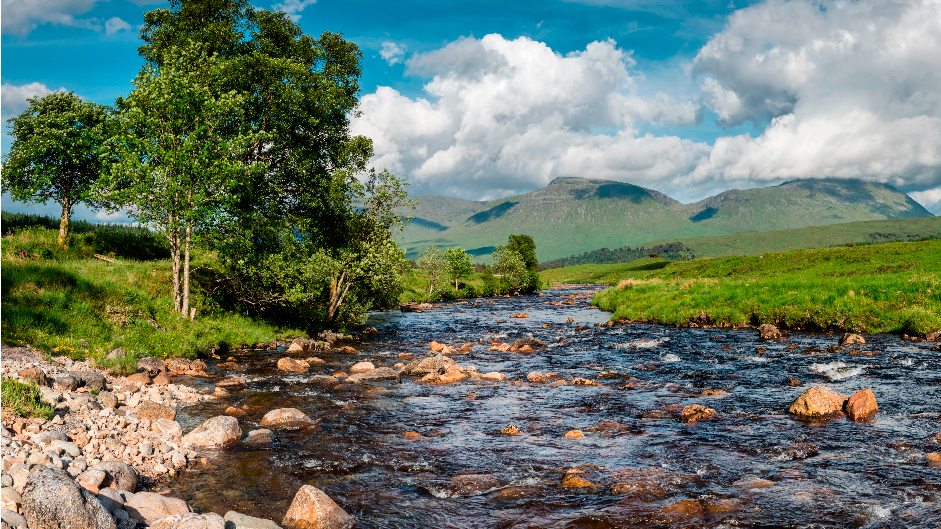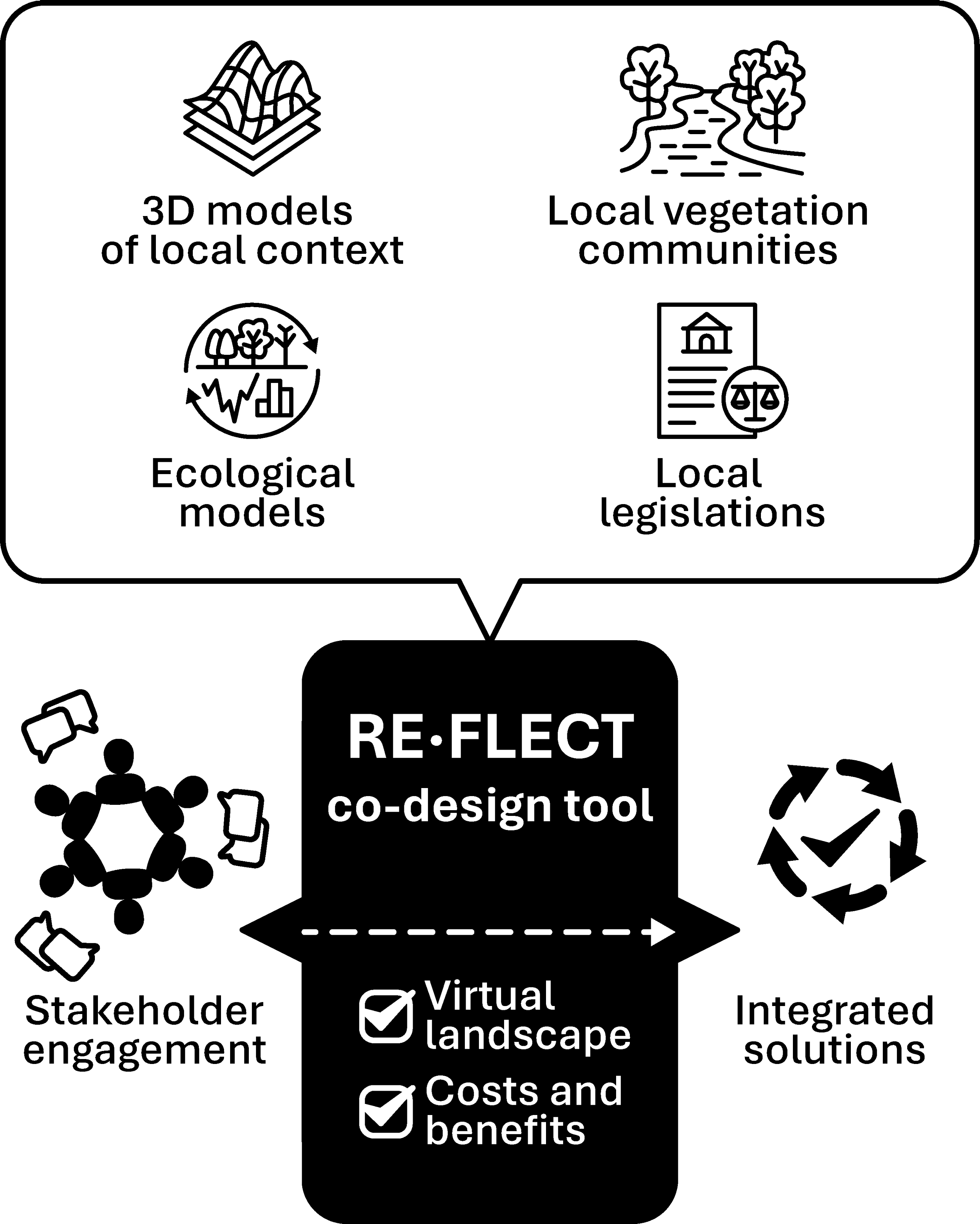RE·FLECT – Visualising Daylight Management in River Restoration
A Decision-Making Tool for Co-Designing Restoration Scenarios is essential for tackling urban waterway challenges. Culverts (enclosed channels that divert streams underground) accelerate water flow, disrupt natural filtration, and degrade ecosystem health. Despite Zurich’s efforts in stream daylighting (restoring buried waterways), 31.4% of its streams remain culverted, affecting hydrology, biodiversity, and flood risk.

In this project, we are developing and modelling visual scenarios for daylight management in ecological restoration of streams and rivers in Scotland and Switzerland. We develop new tools to show people how streams will look like after restoration in different contexts and over time. Such tools will enable everyone, from local residents to government officials, to better understand what restoration outcomes might look like given different decisions and management scenarios. Through an iterative engagement mediated by visualisation processes, we aim to foster more effective and participatory engagement on issues of river restoration and management to ensure that our streams and rivers are healthy and attractive.
Stakeholder engagement is crucial for deculverting, ensuring that communities, policymakers, and scientists co-design restoration scenarios that balance ecological, social, and technical considerations. However, knowledge gaps hinder effective participation, making it difficult to evaluate alternatives, anticipate outcomes, and make informed decisions for long-term restoration success.

Using Zurich and Scotland as case studies, we are developing an ecologically integrated 3D visualization tool powered by game engine technology. This tool procedurally generates landscape elements, enabling users to dynamically explore and combine land-use and restoration alternatives. In Zurich, the focus is on urban waterways and their integration into the built environment, while in Scotland, the tool is applied to large-scale ecological restoration in rural landscapes. This way, the RE·FLECT tool can adapt to different environmental and planning contexts.
Policy and management relevance
Visualised future outcomes catalyse discussions among stakeholders and inform stream restoration processes.
RE·FLECT – Visualising Daylight Management in River Restoration is funded by the Velux Stiftung (2024-2027), in collaboration with Leibniz Universität Hannover, Forestry and Land Scotland, WSL, Eden CT and Stadt Zürich. external page Go to the RE·FLECT website
